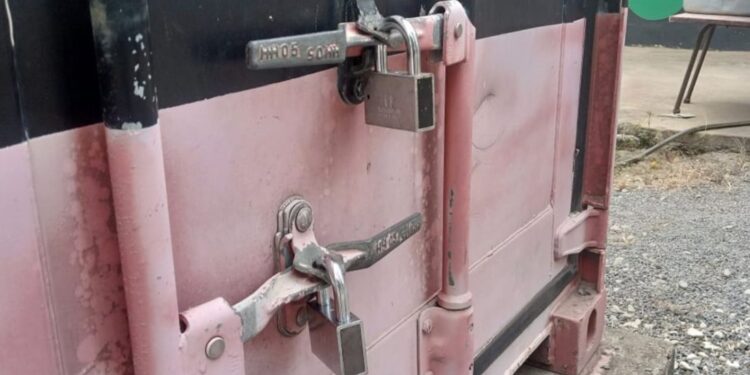In a tech-savvy crackdown on exam malfeasance, the Kenya National Examinations Council (KNEC) has rolled out smart padlocks to secure 2025 exams, deploying digital sentinels on 250 containers nationwide to thwart leaks that have plagued past cycles.
The initiative, spotlighted by Nation Media Group in a vivid dispatch from the launch in Nairobi on Monday, October 27, 2025, marries blockchain tracking with tamper-proof seals, ensuring that question papers travel from printing presses to chalkboards without a whisper of compromise.
As Kenya’s 1.2 million KCSE and KPSEA candidates gear up for November’s high-stakes showdown, KNEC’s CEO Dr David Njeng’ere hailed the move as “a digital moat around our integrity”, his words cutting through the humid air of the council’s Jamhuri Road headquarters like a fresh exam booklet.
The rollout couldn’t be timelier. Just days before the Kenya Junior Secondary Education Assessment (KJSEA) and Kenya Primary School Education Assessment (KPSEA) kicked off in arid outposts like Turkana, where candidates were shuttled to safer zones amid bandit jitters, KNEC’s alarm bells rang over rogue Telegram and WhatsApp channels peddling pilfered tests.
Last year’s scandals, where leaks via shadowy apps netted cartels Sh200 million, left a bitter aftertaste; now, these smart padlocks, sourced from a South Korean firm at Sh50,000 a pop, log every unlock via GPS and biometric scans, alerting HQ if a seal so much as sighs.
“No more midnight motorcycle dashes with stolen scripts; this is vigilance on steroids,” quipped a KNEC logistics officer, fiddling with a prototype’s LED glow during a demo for jittery principals.
Nation Media’s lens captured the grit: A fortified container at a Mombasa depot, its padlock humming like a sci-fi gadget, sealed against the salty Indian Ocean breeze.
Inside? Bundles of pristine papers for coastal Form Fours, bound for Kilifi’s thatched exam halls where humidity once warped booklets. The tech’s not foolproof; critics at the Teachers Service Commission murmur of rural blackouts frying signals, but early pilots in Nakuru and Eldoret logged zero breaches, per internal memos.
Education CS Julius Ogamba, in a parallel briefing, tied it to broader reforms: “Phones in lockers, jammers at gates – we’re building a fortress of fairness.”
For Turkana’s relocated learners, scribbling under canvas tents, it’s a quiet win; no more whispers of “leaked English compo” rippling through drought-scarred villages.
This KNEC smart padlock exams strategy ripples beyond borders. Uganda’s UCE body eyes similar seals after 2024’s WhatsApp fiasco, while Tanzania’s NECTA scouts the blueprint for their Form Fours.
In Kenya, where a leaked paper can torpedo a generation’s dreams (think 2023’s KCSE math meltdown that shaved 5% off national means), it’s a godsend for hustler parents scraping fees from jua kali gigs.
Shadows linger: will cartels pivot to insider hacks or drone drops? KNEC vows audits and training for 500 custodians in Nairobi workshops where mock breaches test the tech’s mettle.
As October’s short rains patter on tin roofs from Kisumu to Kitui, these padlocks stand as unsung heroes, silent, sturdy, safeguarding futures one click at a time.

















